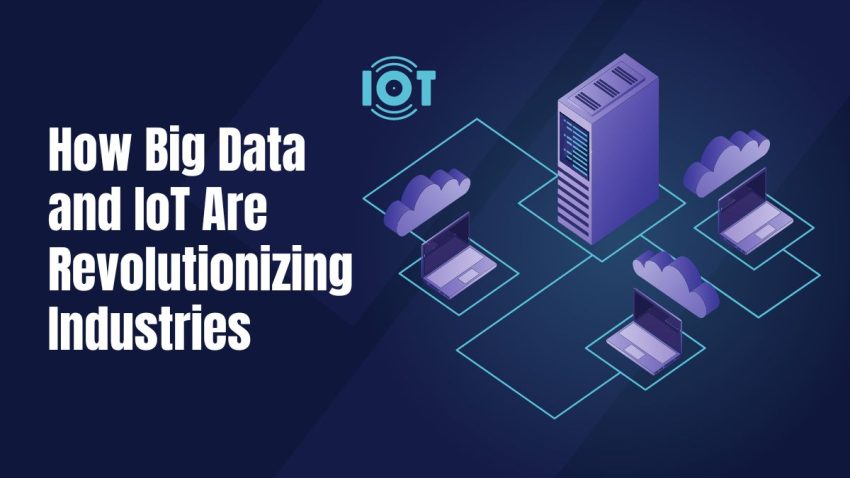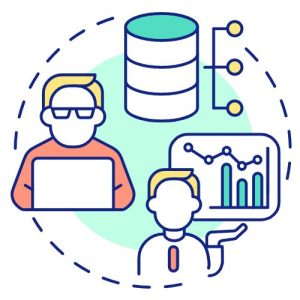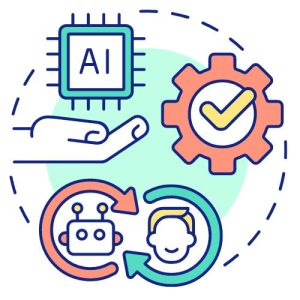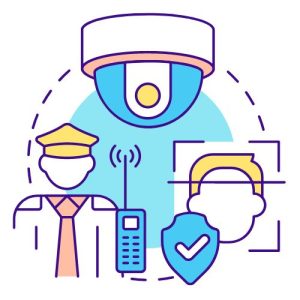How Big Data and the Internet of Things (IoT) Are Revolutionizing Industries

Big Data and the Internet of Things
In the past, businesses had to rely on traditional methods of collecting data, such as surveys and focus groups, to make decisions. But now, with the rise of Big Data and the Internet of Things (IoT), companies have access to more data than ever before.
Big Data and IoT are changing the way businesses operate, allowing companies to make smarter decisions faster, leading to increased profitability and more efficient processes.
By leveraging the power of Big Data and IoT, businesses can gain insights into customer behavior, create more efficient supply chains, and better understand and predict market trends.
What is Big Data?
When people talk about Big Data, they are referring to the sheer volume of unstructured data that is collected, stored, and analyzed by businesses. There is no single definition for Big Data, but most experts agree that it amounts to more than the average person can comprehend.

For example, a single car manufacturer may collect data from thousands of sensors connected to each car it produces. With the massive amount of data collected from each car and different sources, such as weather, traffic, and social media, a single manufacturer may have more data than an entire country.
Because of the sheer volume of data collected, businesses need new ways to store and manage it. As new sources of data emerge, traditional tools like databases, spreadsheets, and reporting software are not equipped to handle the Big Data, let alone the variety of formats in which it is collected.
Now, businesses have access to real-time data streaming in from sensors, wearables, and connected devices, giving them a more complete and accurate picture than ever before. With the rise of these technologies, businesses can create value from big data.
What is the Internet of Things?
The Internet of Things (IoT) is a network of connected devices that are constantly collecting data. The Internet of Things plays an important role in the rise of Big Data.

IoT devices, such as smart sensors, connected cars, and wearable devices, generate massive amounts of data that need to be stored, processed, and analyzed. In addition to collecting data, IoT devices can also interact with one another, which opens the door for more advanced applications in business.
For example, sensors in a manufacturing plant can automatically adjust machine settings based on the data they collect. IoT devices also have the potential to change the way companies interact with customers.
With the help of IoT devices, businesses can collect data from customers in real-time, such as how they use a product. By using this information, businesses can respond to customer needs more efficiently and effectively.
Examples of Big Data and IoT in Action
Here are some examples of big data and IoT systems in action:
Benefits of Big Data and the Internet of Things
As businesses collect and store more data, there are a large number of benefits from IoT data. With access to more data, organizations can create more personalized experiences for customers.
For example, a grocery store can collect data from customers using its mobile app. This data can then be used to recommend more personalized items, such as items that are on sale or an item that another customer with similar food preferences bought.
Big Data and IoT can also be used to create more efficient supply chains, enhance cybersecurity, and better understand and predict market trends. The potential for big data and IoT is seemingly limitless.
Big Data and IoT Security Considerations

Big Data and IoT generate large amounts of data, which can be a security risk. If cyber attackers are able to access the data, they can use it to create more personalized and effective attacks. Therefore, businesses must take extra precautions to ensure the security of their networks, data, and devices.
With the IoT, businesses should ensure that the devices they use are secure. They should also have an effective strategy for patching and updating devices so they are less at risk of cyberattacks.
Challenges of Big Data and IoT
The data collected by businesses using Big Data and IoT may be sensitive and require proper protection. Businesses must ensure that the data is secure and that only authorized individuals have access to it. Otherwise, the data may be compromised.
Given the high volume of data being generated and collected, businesses must also have the capacity to store and analyze it quickly. In order to take full advantage of the data, businesses must have the right tools in place to efficiently store and process massive amounts of data.
Businesses need to train personnel to make sense of Big Data for better decision-making. That’s why there are courses online in Big Data that provide training in areas like Hadoop, Apache Spark, and MapReduce.
Conclusion
Big data and IoT are transforming industries and the way businesses operate. These technologies collect and store massive amounts of data, which can be used to gain valuable insights.
For example, this allows businesses to create more personalized experiences for customers, and better understand and predict trends in the market.
With the appropriate tools in place, businesses can collect and store more data, which can be used to improve decision-making and create more efficient processes.
In short, big data and IoT are transforming industries, providing organizations with the tools they need to remain competitive in an increasingly connected world.

Related Big Data
The Pros and Cons of the Internet of Things (IoT)
How Big Data and the Internet of Things (IoT) Are Revolutionizing Industries
An Overview of Big Data Careers: Make Big Data Your Career
The 5 V’s of Big Data
13 IoT Uses And Applications for a Connected World
What Is A Data Mining Specialist and What Does It Do?
How Big Data Can Help Your Business Grow
An Introduction to Apache Hadoop: What Is It and How Can It Help Your Business?